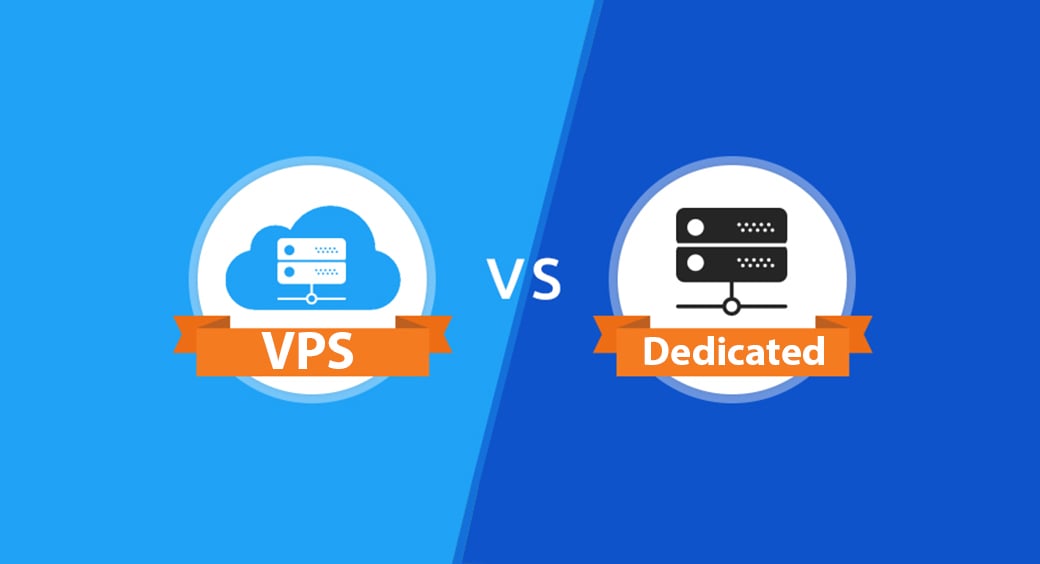When you are looking at hosting options, you might come across a number of terms that you don’t understand. When asked to choose between dedicated servers or VPS, you might not have any idea of what you’re actually looking at. Here’s an explanation of what dedicated servers are, what VPS is, and how to tell the difference between the two.
What are dedicated servers?
First, it’s important to understand what dedicated servers are. This style of internet hosting means that you lease an entire server just for your website, which is not share with any other person or company. You will get more control over the server, such as your choice of operating system and hardware, and you’ll get a higher level of performance than on a shared server. You will see more security, which is great for your customers if you’re selling online, and it ensures greater email stability. Of course, all of this does come at a higher price than shared hosting, so it is usually used by bigger companies and sites that get a large volume of traffic.
What is a VPS?
A virtual private server, usually known as a VPS, is a virtual machine which you can purchase as a service from internet hosting companies. The VPS runs its own copy of an operating system, which means that almost any software can be installed on it, and the VPS can often function in a very similar way to a physical dedicated server. They are often priced lower than their equivalent in the physical world, but because they share their physical hardware with other VPS services, the performance might end up being lower. This depends on the workload which is distributed amongst all the other virtual machines using the same hardware.
What are the differences between them?
Although one is virtual and one is physical, they both have to use real, physical hardware in order to exist. This means that the differences between them usually stem from the way that the physical hardware is used.
In a VPS, you might have your own dedicated virtual space – but this does not mean that you have dedicated physical hardware. In other words, while a dedicated server will be used only for you in all aspects, a VPS still shares its hardware with other virtual servers. This means that the performance can be much better for a dedicated server. In all other ways, though, the VPS does act like a dedicated server, including giving you plenty of control.
On the other hand, it’s easier and cheaper to set up and run a VPS. This means that you can expect to pay less for a VPS than you would for a dedicated server. In some cases, it could be substantially less. This is what draws many people to opt for a VPS.
What should you go for?
If you’re looking to save as much money as possible, then a VPS will be right for you. You can get a lot of functionality and will definitely see lots of great results from your servers, but on the other hand, the performance might not be as good as a dedicated server. So, if finance is your biggest issue right now, then you should definitely go for a VPS.
If you think that you will get a lot of traffic to your website, and you want to be able to accommodate everyone, then a dedicated server will suit you a lot better. It can be unpleasant to find out that you’re generating leads to your website, only to have the whole thing crash because your server can’t handle the traffic. If you have a piece of content that goes viral, or you launch a popular new product, then you need to be sure that your servers will keep everything on track.
Businesses that sell online, particularly those that are already well-established, should opt for a dedicated server. This is especially the case if you sell online services. If you’ve set up a training course on your website, for example, and customers pay to get access to it, then you need to guarantee that they will be able to access it at all times. Otherwise, you may have to start issuing refunds.
Conclusion
Remember that whatever you choose, it doesn’t have to be for life. Some host companies will have you pay for a year or two years in advance, but you can always change the package that you have opted for if you decide that it’s necessary. You aren’t locked in – even if you decide to change before the year is up, you can absolutely do that. It might cost you a little more, but if it ends up being the best decision for your website, then it’s all good.


Leave a Reply